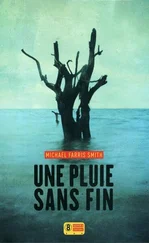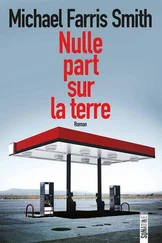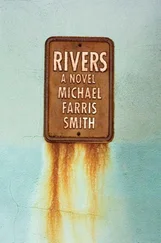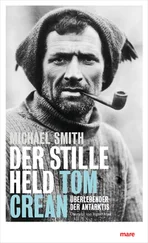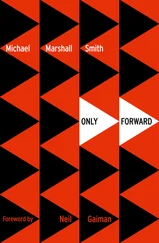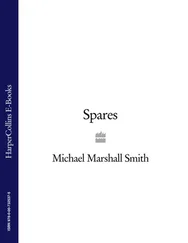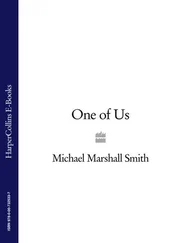They made their way up the staircase in Corduroy Mansions, man and dog, Freddie de la Hay carrying the Belgian Shoes with the air of a gundog bringing back a pheasant - and this, William thought, was the urban equivalent. London dogs might not be able to bring pheasants back to their owners but they could at least retrieve Belgian Shoes.
William’s amusement over Freddie’s desire to be useful meant that he did not dwell on the question of Eddie until he was taking off Freddie’s leash in the hall of the flat. Eddie was not an early riser on a Saturday - nor on any day, William reminded himself - but now there were sounds, and the smell, of freshly ground coffee coming from the kitchen. Eddie always ground coffee with careless abandon, putting far too much into the grinder and then throwing out the surplus. I paid for that, William thought; I pay for every single coffee bean that my son grinds and then throws out.
Leaving Freddie de la Hay in the hall, William walked into the kitchen. Eddie was standing at the kettle, filling the coffee jug with water. He had just got out of bed by the look of things and was wearing only a pair of red boxer shorts. William looked at his son with distaste; he looked at the small mole on his back, at the line of hairs at the top of his spine, and . . . there was a tattoo just above the beginning of the natal cleft.
Eddie, continuing with his coffee-making, did not turn round. ‘Morning, Dad. Taken your new friend for a walk? Or the other way round? “Dog Makes Fat Owner Lose Weight”.’
It was another of Eddie’s headlines. William clenched his teeth. It helped, he found, to do this when Eddie said something particularly annoying. ‘“Idle Son Wastes Father’s Hard-earned Coffee”,’ he replied. ‘And I am not fat, by the way.’
Eddie laughed. ‘Come on, Dad. No need to be so sensitive. So you’re thin. Feel better now?’
William found himself staring at his son’s tattoo. ‘You’ve got a tattoo,’ he muttered.
Eddie looked over his shoulder nonchalantly. ‘Oh, that. Yeah, I’ve got a tattoo. So? You want one too? I know this guy who does really good work. Not cheap, but you have to pay for quality. You could have “wine merchant” tattooed on your arm if you like. Or “Pimlico” maybe. Anything you like - he’s really artistic. Calls himself Da Vinci Tattoos. How about that? Da Vinci Tattoos.’
‘I wouldn’t dream . . .’ began William. But he was now peering more closely at his son’s back, straining to make out the details of the somewhat indistinct tattoo. There were words underneath the picture and he read these now - and then recoiled sharply. ‘Eddie, why on earth would you have that put on . . . put on your back?’
Eddie shrugged. ‘Because it says it all, doesn’t it?’
William sighed. ‘And what if you decide that you don’t want it any longer? What then?’
Eddie moved across the room to pour the coffee. ‘Oh, people always say that about tattoos,’ he replied. ‘But that argument could be used against doing anything. Any building, for example. The Dome. The new terminal at Heathrow. Anything.’ He paused, sniffing at the jug of coffee he had just made. ‘You need to get more of that Jamaican stuff, Dad. I don’t like those big bags of Colombian that you get cheap. Anyway, where’s our dog?’
‘Our dog?’
‘Yes. Freddie de la Whatever. The dog you got us.’
William looked out of the window. ‘I thought that you didn’t like . . . ?’
‘Exactly, Dad - didn’t. Past tense. I’ve been thinking, and I think Freddie and me are going to get on fine.’
‘Freddie and I.’
‘Yes, you too.’
William felt himself getting warm at the back of his neck. He looked at the red boxer shorts. Disgusting. My own flesh and blood. Disgusting.
‘I thought I might take Freddie down the pub,’ Eddie remarked. ‘I’m meeting Stevie. He’s keen on dogs.’
William said nothing. His plan had failed. He had failed.
Then Eddie saw the Belgian Shoes, which his father had retrieved from Freddie de la Hay in the hall. For a moment his eyes narrowed, then he looked up at William. ‘You’re going to wear those, Dad? You’re going to wear them ?’ He reached forward and snatched one of the shoes from William’s hand. ‘“Man Buys Sad Shoes”,’ he said.
By the time he left for the shop that Saturday, William was in a thoroughly bad mood. Exchanges with Eddie were difficult at the best of times but that morning’s conversation with his son - if one could really be said to converse with someone who spoke in newspaper headlines - had made him feel quite bereft of hope. Eddie, it seemed, was the cross that he was destined to bear in life, the reluctant, work-shy fledgling who would never leave the nest. The prospect of years of his company was grim indeed, and what if - awful thought - Freddie de la Hay were to decide to side with Eddie? It was too appalling to contemplate. ‘Man Pushed Out,’ he thought, ‘by Son and Dog.’
He stopped. He could not allow himself to catch Eddie’s dreadful headline habit; like all linguistic short cuts, it was so seductive, so easy to slip into. No, he would take command of the situation and act decisively . . . He would . . . he would . . . he would move out. No, he would not. That would be capitulation. He would give an ultimatum to Eddie. He would throw him out. He would tell him . . . No, he would speak to Marcia. She would tell him what to do.
When William arrived at the shop he found Paul serving a small queue of customers. His assistant threw him a reproving sideways glance, muttering under his breath, ‘Look at the time.’
William smiled at the customers and then turned to glower at Paul. ‘Did you say something?’
Paul counted out a customer’s change. ‘I said, look at the time,’ he repeated out of the corner of his mouth.
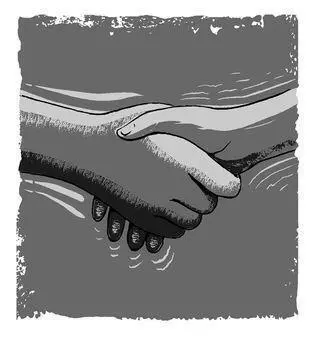
William drew in his breath. ‘That’s what I thought you said. And what, may I ask, do you mean by that?’
Paul now turned away from the customers and addressed William. He spoke quietly but his voice became louder as his indignation increased. ‘I meant that you’re always criticising me for being late and then where are you when all these people need to be served? I had to get up on the ladder twice this morning to get those stupid Californian wines off the top shelf. Twice. Almost broke my neck. And people waiting to be served.’
William smiled again at the customers. ‘I’ll speak to you later,’ he whispered to Paul. ‘And remember it’s California wine, Paul. Not Californian . A Californian is a person , not a wine. They’re very fussy about that. And that, if I may remind you, is how we tell those who know what they’re talking about from those who don’t.’
‘I don’t care,’ said Paul. ‘I’m going over to Oddbins.’
‘Then we’ll have a little chat when you come back. And don’t be long, please.’
Paul laughed. ‘You didn’t get it, Mr French. I said I’m going over to Oddbins. Not to buy anything. I’m going to go and ask for a job. The manager said that any time I needed a job I should speak to him. So I’m going. Right now. This morning.’
William stood in silence. He reached out to place a hand on his assistant’s shoulder - a gesture half of apology, half of restraint. ‘Now listen, Paul—’
‘No, I’ve just had enough. Sorry. You don’t pay me enough. You never have.’
William felt the same warm feeling that came to him when he argued with Eddie. It was exactly the same: inter-generationalgenerated subcutaneous warmth.
Читать дальше


